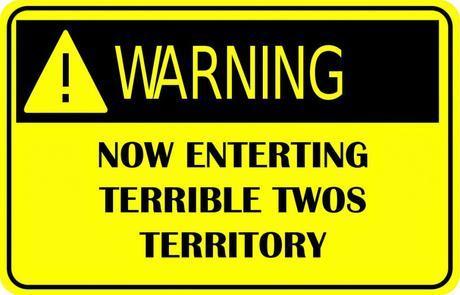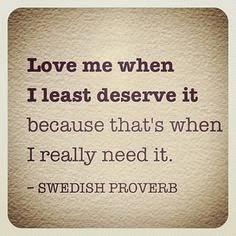To be fair, it's one of many very common phrases I can't stand (potty training is another), but this one really gets to me. And, funnily enough, as Isabelle and her friends are heading to the age of 2 it's a phrase which I am hearing a lot.
Why do I hate it? Because of everything associated with it. When people say "the terrible twos" what they mean is that their child is having tantrums, being uncooperative, not listening, not doing what they are asked to do and generally just being a wee bit awkward. Which does actually sound pretty terrible.
So the idea is that toddlers are behaving in a terrible fashion and that we need to put a stop to all this horrible behavior. We must ignore these tantrums! We must not give in! We shall not yield to these TERRIBLE TODDLERS!

I hate it. The whole idea of it. I hate the thought that toddlers are being 'terrible'. Toddlers ARE NOT TERRIBLE! They are many things, not all which which are good, but calling a child terrible is truly a horrible thing to say. They simply cannot behave like an older child. They simply cannot deal with everything life is throwing at them. They simply cannot express how they feel. That doesn't make them terrible - it makes me feel so terrible FOR them!
I don't think that at 2 years old a toddler really understands why they can't do something, or why they can't have something. They understand that 'No' means they can't have/do it, but they don't always understand the reason why. All they know is that they REALLY want to have/do it and yet they aren't allowed. Imagine how frustrating it would be to not understand why you can't do whatever you want. No of us like being told they can't and we, as adults, understand the reasons.
Toddlers are also at that amazing age where they are starting to understand that they are their own little person. They don't HAVE to say please - we can't MAKE them. So they begin to assert this independence which comes out as defiance to what we ask them to do. Will you help me put these toys away? No. Will you say sorry for hitting the dog in the face? No. I don't see this as a child being terrible or uncooperative, or downright rude. I see this as a child who is beginning to assert their independence, and isn't everyone always banging on about how wonderful it is to have a child who is independent? Yes, it is annoying trying to get a stubborn little human to say or do the thing we want them to - it's extremely annoying at times. But you have to admire their perseverance in a way...
And I know for sure that they can't deal with their feelings. They have all these insane feelings flying about which they don't know how to control and they don't know how to verbalise - no wonder they go into melt down sometimes! Sometimes I get so frustrated I am close to tears, and toddlers get frustrated so easily because they just can't always do what they wish they could, so I understand why they scream and shout. It's a big world. Things are confusing, scary, exciting, frustrating - all big emotions which tiny people can't always handle. Unlike adults they can't just take themselves away off for a few deep breaths and bury their emotions, so they deal with it the only way they can. Screaming. Shouting. Crying.
There is all this chat about ignoring tantrums, and it drives me bonkers. Imagine you were so frustrated that you burst in to tears and everybody ignored you. You would probably think "Heartless sods don't give a damn about me". But yet we are expected to ignore our kids when the same happens to them? I know people say it works, and it is each to their own, but ignoring my child when she is struggling is just not my way of parenting.
Now, please don't for a minute think that if Isabelle screams her head off because I won't buy her a bag of sweets (not that she's allowed sweets) that I will give in because I don't want her feelings hurt. No way! However, I do think that when she is struggling to handle her emotions that I should be there to help. Much of the time that involves me bundling her up in a hug and saying "I'm sorry you are having a tough time right now." Isabelle has a habit, when she is asked not to do something or she thinks she has been 'naughty', of covering her eyes with her hands and putting her head down. Usually an act like this is seen as even more defiance - a child ignoring a parent, a child huffing. During this time I say to Isabelle "You take all the time you need to gather your thoughts", and allow her the time she thinks she needs away from the world to allow her emotions to settle down until she feels ready to move on. I don't see this as a bad thing at all - I think it is incredible that she can take the time she needs to work through her feelings at such a young age!
I very much believe that children need clear rules and clear boundaries to help them. How can we expect them to grow up to respect society's rules if we don't teach them the basics at a young age? That's why I will never allow a tantrum to dictate what I give to Isabelle/buy for her just because she wants it - that isn't how adult life works and toddlers have to learn that. However, Isabelle has plenty of clear rules and boundaries which I can demonstrate to her while I respect the fact that she is a toddler whose understanding of the world, and of herself, is still very limited. I don't expect her to control herself as an older child would. I expect her to get frustrated and cry and scream, simply because she doesn't know how else to deal with her feelings.

I imagine a lot of people will disagree with me and my thoughts on the terrible twos, just as I disagree with many people. Every family has to do what is right for them, but I really urge the parent of a "terrible two" toddler to stop and think next time they think their child is having a moment - what has happened? What is really wrong? Is it really because they can't have that toy or is it because they are frustrated that they are not in control of their own life? And how can you help without dismissing your child's feelings as unimportant and unworthy of your consideration?
